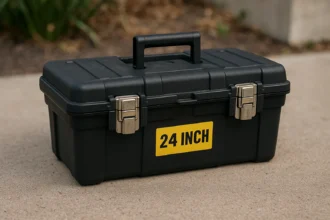So, you’re ready to write the ultimate story—your own life story. But, how do you turn your own experiences into something engaging, interesting, and worth reading? You know, without making it sound like a boring tutorial or a dry biography. Well, it’s not just about telling people your life’s events—it’s about making it your game, your own epic journey with challenges, victories, losses, and hard-won lessons. How to Write a Book About Your Life
I get it—you’re probably used to navigating complex, immersive storylines in video games. You know the drill: you’ve got a goal, a bunch of obstacles in your path, and plenty of unexpected twists along the way. Writing a book about your life is pretty similar to tackling a long, complex quest in your favorite RPG or strategy game. How to Write a Book About Your Lif

This article is for all you gamers who want to turn your life’s experiences into a book that not only captures your journey but also feels just as compelling as your favorite adventure. We’ll talk about the process step by step, from planning to writing to editing, and, of course, we’ll sprinkle in some humor and gaming analogies to keep it interesting. How to Write a Book About Your Life
Step 1: Why Write a Book About Your Life?
Before we get into the nitty-gritty of writing a book, let’s take a step back. Why write about your life in the first place? How to Write a Book About Your Life
For me, it’s all about creating a legacy—something that can help others learn from your experiences or simply entertain them. Writing a memoir can be as personal as you want it to be, but there’s also a huge potential to inspire others with your story, whether it’s about overcoming a tough time, reaching a personal goal, or simply growing through the ups and downs of life. How to Write a Book About Your Life
Pro tip: If your reason for writing is solid, it will help you stay motivated through the inevitable rough patches. You can think of this step as your “main quest” in the game of memoir-writing—get clear on why you’re doing it, and it’ll help you tackle every level that comes next. How to Write a Book About Your Life
Step 2: Plan Your Quest—Map Out the Major Events
Now that you know why you’re writing, let’s start plotting your journey. Just like how a game’s main plotline doesn’t happen in a vacuum, your life’s events didn’t just happen randomly. Everything you’ve been through connects to create a meaningful arc. How to Write a Book About Your Life
This is where brainstorming comes in. Grab a pen and paper (or your favorite digital tool), and jot down key events from your life. Think about the milestones—major achievements, failures, relationships, travel, challenges, and those odd side quests that shaped who you are. This could include your childhood, your school years, career highlights, and even the struggles you’ve faced along the way. How to Write a Book About Your Life
Once you’ve made your list, start grouping events into themes. For example, you could group chapters by:
Childhood Adventures: Early lessons and what shaped your worldview.
Growth and Development: Challenges and turning points in your teenage or adult life. How to Write a Book About Your Life
Love and Relationships: How significant relationships impacted you.
Career Journey: The quest for success, hardships faced, lessons learned.
Pro tip: This process doesn’t need to be perfect. Just like you wouldn’t expect to win a boss fight without leveling up first, don’t expect your first draft to be flawless. Organize your thoughts in a way that feels right to you—later you can clean things up and tighten the structure.
Find Your Narrative Voice—Become the Main Character
Every game has a protagonist with a distinct voice. Whether they’re brooding, charming, or comedic, their voice makes the story unique. The same applies to you. When writing about your life, your voice is what will make your memoir stand out from the rest. How to Write a Book About Your Life
So, ask yourself: What is your storytelling style? Do you like to be funny and sarcastic, or are you more serious and reflective? Do you weave in personal anecdotes and humorous observations, or are you more focused on a deeper, emotional connection? How to Write a Book About Your Life
If you’re a gamer, you’re probably familiar with how some characters in video games have a very specific tone. Think about how a character like Geralt from The Witcher talks—he’s blunt, witty, and never minces words. You need to find your own “Geralt” when it comes to telling your story. Are you the relatable, down-to-earth type who brings humor into tough situations, or are you the thoughtful narrator who guides the reader through deeper emotions? How to Write a Book About Your Life
Pro tip: Your “voice” doesn’t have to stay rigid throughout the entire book. Sometimes you’ll need to shift tones depending on the events you’re describing, just like how a game’s tone shifts from lighthearted moments to intense, dramatic scenes. Just make sure to stay true to yourself. How to Write a Book About Your Life
Start Writing—Don’t Be Afraid to Hit the Save Button
When you first start writing your memoir, it might feel like you’re walking into an open-world RPG—there are a lot of paths you could take, and the possibilities can be overwhelming. But the most important thing is just to start. How to Write a Book About Your Life
Like any gamer, you’ve probably heard the advice, “Just start grinding!” Writing your book is a lot like that. Don’t worry about getting everything perfect on your first attempt. Don’t pause every few minutes to edit yourself. Just write, write, and write some more. Think of it like a free-play mode in a game—explore, mess up, find new things, and keep moving forward. How to Write a Book About Your Life
Pro tip: Set daily or weekly word count goals. Even if you only manage 500 words in a sitting, that’s a solid progress. If you’re really into achievements, you can reward yourself after reaching certain milestones (like hitting your word count or finishing a tough chapter). Everyone loves that sweet, sweet XP. How to Write a Book About Your Life
Organize Your Chapters—Break It Down Like a Side Quest
Remember that big list of events you wrote down earlier? Now it’s time to start turning it into chapters. Think of each chapter like a mini-quest within your larger adventure. Each chapter should have a beginning, middle, and end, with its own mini-arc that contributes to your overall story. How to Write a Book About Your Life
Introduction: This is like the opening cinematic of your life story. Give the reader a taste of who you are and why your journey is worth following. How to Write a Book About Your Life
Each Chapter: Take each significant event or period of your life and expand on it. Each chapter should reflect a phase in your personal growth, much like the way a character evolves in a game. How to Write a Book About Your Life
Climax & Resolution: Just like any game, you want to build towards a powerful climax—your big life-changing moments. Then, wrap up with the lessons you learned and how you’ve grown from those experiences. How to Write a Book About Your Life
Pro tip: Structure your story so that each chapter has a clear focus. Try to avoid getting bogged down in unnecessary details that don’t drive your main plot forward. How to Write a Book About Your Life
Step 6: Edit, Edit, Edit—The Boss Battle of Writing
After you’ve completed your first draft, it’s time for the most crucial step: editing. This is your “final boss battle” of the writing process. Editing is where you clean up your story and make sure it reads smoothly.
Here’s where you cut out the fluff, tighten up sentences, and make sure everything flows well. You’ll want to ensure your tone stays consistent and that your story moves forward without unnecessary side quests. Plus, check for any inconsistencies in your narrative—kind of like checking for glitches or bugs in a game.
Pro tip: Don’t try to edit while you’re writing. Give yourself some distance from the draft, then come back to it with fresh eyes. And if you can, get someone else to read it. They might catch things you missed, just like how a fellow gamer might point out a mistake you didn’t notice in the game.
Publish and Celebrate—You’ve Completed the Quest!
After all the hard work of writing and editing, you’re finally ready to publish your book. Whether you choose to self-publish or pitch to traditional publishers, your life story is ready to make its debut.
Now it’s time to celebrate—this is your “victory royale,” your big win after grinding through countless hours of work. But remember, just like how a gamer has to grind to level up, don’t forget about the marketing grind. Share your story on social media, set up a website, and let people know your book is available.
Pro tip: Keep the momentum going. Once your book is published, consider doing a follow-up—whether it’s a second book, a blog series, or even a podcast. Like any game with sequels, there’s always room for more.
Conclusion: Your Story is the Ultimate Game
Writing a book about your life is a challenging but rewarding quest. It’s like tackling an epic RPG where you’re the main character, and every event in your life is part of the larger story. Whether it’s personal struggles, achievements, or growth, your memoir can capture the essence of your journey—and like any good game, it’ll leave an impact on those who follow along. How to Write a Book About Your Life
So, grab your pen (or your keyboard), start grinding, and begin crafting your legacy. Your life story is more than just a tale—it’s an epic adventure, and now, it’s time for you to share it with the world. Keep it real, have fun with the process, and most importantly, enjoy the ride. After all, your story is the greatest game you’ll ever play.





